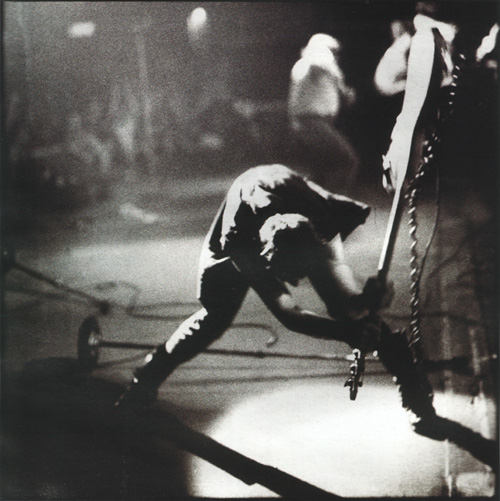I spend a lot of time listening to, and thinking about music. I love dissecting the artistic process, and trying to understand why music moves people. In thinking about this, I can’t help but see connections to the current state of the media industry and journalism. I find myself meditating on two concepts:
- Authenticity
- Perfectionism
Let’s take a look at both, and dig into why each is a driving force in how the web is reshaping media.
Authenticity:
When I think of authenticity in music, one of the things I think of is the punk ethos. Mostly, I suppose, I think of The Clash. Pure power. A blend of the cognitive and the primal.
Now, the thing about the internet is that it has leveled the playing field in terms of the power of gatekeepers. Anyone, anywhere, can publish, for free, and reach a worldwide audience.
So what we have, is a lot more direct contact with information sources from any corner of the world. You can say a lot of things about the "wild wild web," but authenticity is a key element that the web has driven into the deepest corners of our lives.
In journalism and news reporting, we find many more voices from "in the trenches" – first hand reporting via text and video. Some is commentary, some is just bearing witness – but we have become a world of reporters. Everyone has their cell phone camera… their social networks… their blogs… their Twitter account… or email… or instant messaging… what have you.
The masses have a voice. The voices are not always polite. Not always accurate. But then, neither were The Clash. However, they were authentic, and say what you will about blogs and new media – it allows for an unmediated sense of authenticity at a compelling pace.
Perfectionism:
Where authenticity can lie in the raw expression of someone’s passion, perfectionism is often the result of slowly crafting something – experiencing the journey of creation in its most minute detail – in order to strip away anything that is not absolutely essential.
Perfectionism in my mind tends to lie with those who produce records… like Brian Eno. People who spend countless days and nights fiddling in the studio, remixing, rerecording, searching for the perfect sound. No beat is errant – no path has gone unexplored in even the smallest decision.
In journalism, perfectionism can be viewed from the standpoint of objectively reporting only proven fact. What new media has added to this are the concepts of a "living document" and of crowdsourcing. Both attempt to do what could not be done in the past due to the limitations of media.
By a "living document," I mean the concept that a piece of reporting – can constantly be revised as new facts are uncovered. It is a living breathing thing. It is fluid. It is a process. Wikipedia embraces this, as do many blogs – the sense of an event unfolding in real-time.
The concept of voice is where crowdsourcing comes in…
Crowdsourcing is the idea that the many can create something more nuanced than a single person could on their own. The knowledge and experience of a group, often outweights that of the individual.
You see this in blogs, through comments, and the hundreds or thousands or millions of voices commenting on a single story.
Can this be a slow and painful process, where you are constantly confronted questions, not answers? Sure. But then, what’s easy is not always what’s right.
And that is the beauty of Brian Eno’s work… you find yourself asking questions… expanding your experience, rather than simply fitting it into preconceived notions and categories.
Perhaps what I like most of all about new media is the limits it has removed in terms of creation, cost, and reach, which allow us to further explore the tenets of journalism. And the beauty of it is that there is no one answer – there is no one voice. What we are left with is a deeper connection to each other, as we explore what it is to communicate, to become aware of our world, and to play a part in shaping it.

